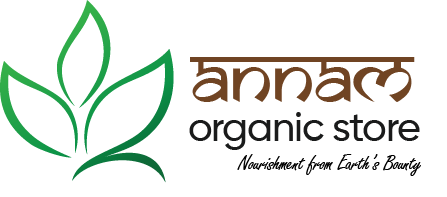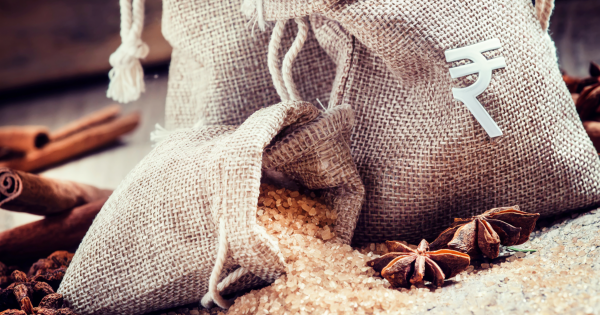Have you ever wondered why organic groceries come with a slightly heftier price tag than their conventional counterparts? In a world where every rupee counts, understanding the true value behind organic products can transform your perspective on food and health. We are about to dive deep into the factors that set organic prices apart—from premium quality ingredients and sustainable farming practices to the ethical treatment of labor and the rigorous certification processes that ensure authenticity. Appreciating these nuances not only empowers informed choices but also supports a community-driven, sustainable future.
The Essence of Quality
Organic produce is celebrated for its exceptional quality—a quality that is evident from the first bite. Unlike conventional produce, which often relies on synthetic pesticides and fertilizers, organic farming emphasizes natural growth processes. This approach results in food that is not only visually appealing and bursting with flavor but also richer in nutrients.
Consider the crisp, vibrant vegetables from local farms in Goa, where every fruit or vegetable is nurtured in naturally enriched soil. The process ensures that each bite is filled with an authentic taste that is both wholesome and satisfying. Organic farmers invest extra care in managing their fields, using natural composts and organic pest control measures. This hands-on, artisanal approach guarantees that the produce you enjoy is grown with the utmost respect for nature’s processes.
Sustainable and Ethical Farming Practices
At the heart of organic agriculture lies a steadfast commitment to sustainability. Organic farming practices are designed to protect the environment and preserve natural resources. By eliminating the use of synthetic chemicals, organic farmers safeguard the soil, water, and biodiversity around their farms.
In Goa, several initiatives encourage sustainable farming. These practices include crop rotation, intercropping, and the use of natural pest repellents—all of which help maintain soil fertility and reduce environmental impact. For instance, local organic producers often integrate traditional farming techniques that have been passed down through generations. This respectful use of nature not only produces healthier food but also reduces pollution and fosters a richer ecosystem.
Moreover, ethical labor practices are a cornerstone of organic farming. Many organic farms ensure fair wages and safe working conditions for their laborers, a factor that contributes to the overall cost. When you buy organic, you’re not just purchasing food—you’re supporting a system that values human dignity and environmental integrity. This means your choice of organic produce helps uplift local farmers and sustains communities that rely on traditional, ethical farming methods.
The Economics of Local, Small-Scale Production
Another critical factor influencing the cost of organic products is the scale of production. Unlike conventional farms that operate on large scales and benefit from economies of scale, many organic producers—especially those in Goa—operate on a much smaller scale. This small-batch approach often results in higher per-unit costs, as each product is meticulously cared for from seed to harvest.
Local organic farmers in regions like Karnataka and Uttar Pradesh work diligently to cultivate produce using sustainable practices that don’t compromise quality for quantity. These farmers invest significant time and effort into every step of the production process. The limited scale not only preserves the intimate, community-based feel of the product but also ensures that the produce maintains its high nutritional and sensory value.
Certification and Compliance Costs
One of the lesser-known contributors to the cost of organic products is the rigorous certification process that ensures the authenticity of organic labels. Organic certification involves extensive documentation, regular inspections, and adherence to strict guidelines. These measures are in place to guarantee that the produce is genuinely organic, free from synthetic chemicals and genetically modified organisms (non-GMO).
The certification process, while essential for building consumer trust, adds to the overall cost of organic produce. It requires both time and money, which are then reflected in the final price tag. For instance, in Goa, where regulatory standards are increasingly being enforced to maintain high-quality organic produce, the expenses related to compliance are passed on to the consumer. This means that every rupee you spend is backed by a guarantee of quality, safety, and environmental stewardship.
However, In our quest for organic purity, it’s hard not to wonder why the certification processes—designed to safeguard our food’s integrity—are so cost-intensive and complex. Despite the clear public health benefits of organic produce, governmental initiatives to streamline these rigorous standards seem lacking. This gap begs the question: why aren’t regulatory bodies investing more resources into making organic approvals more accessible and affordable? When our health is at stake, shouldn’t the system work harder to ensure that safer, natural food is within everyone’s reach?
Investing in Your Health and the Planet
Ultimately, the higher price of organic products is an investment in your long-term health and the well-being of the planet. While it may seem that organic food costs more upfront, the benefits far outweigh the initial expense. Organic produce offers a richer nutrient profile, reduced exposure to harmful chemicals, and a lower environmental impact.
Health experts and nutritionists consistently highlight the advantages of organic foods. For example, studies have shown that organic produce can contain higher levels of antioxidants and essential vitamins, which are crucial for a robust immune system and overall wellness. In Goa, where the lifestyle is closely intertwined with local cuisine and fresh ingredients, embracing organic food is a natural choice for maintaining a healthy, balanced diet.
Quality, Sustainability, and Community
When you shop for organic products, you’re doing more than simply filling your pantry. You’re choosing quality over quantity, supporting sustainable practices, and investing in the future of your community and the environment. The higher price tag on organic items reflects a complex interplay of factors—from the exceptional quality of naturally grown produce and the ethical treatment of labor to the costs associated with certification and small-scale production.
For those in Goa and elsewhere who are considering making the switch, remember that every rupee spent on organic food is an investment in a healthier, more sustainable future. Support local organic initiatives and choose products that align with your values—quality, sustainability, and ethical practices are at the heart of every organic purchase.
At Annam Organic Store, we’re proud to offer a range of carefully curated organic products that embody these principles. Our commitment to local sourcing, sustainable practices, and transparent certification ensures that every product we offer meets the highest standards. Explore our selection and join us in supporting a food system that truly cares for you and the planet.
As responsible consumers, our concern should not be fixated on the price of organic goods, but rather on asking ourselves why junk food is so cheap.





